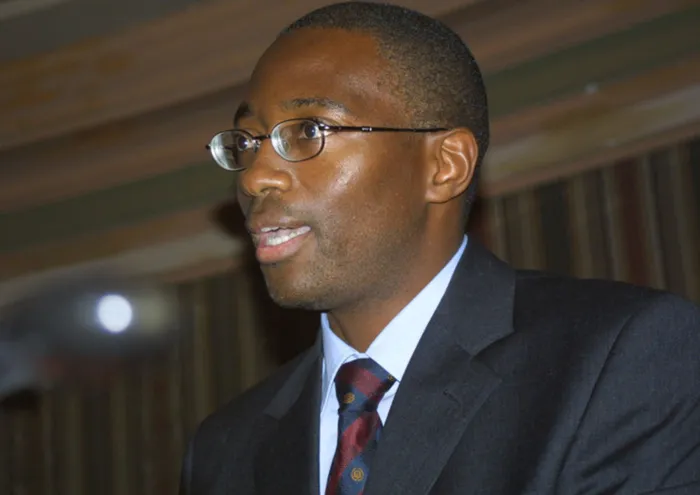Marikana cops tried to prevent bloodshed

Advocate Vuyani Ngalwana, counsel for the police at the Farlam Commission of Inquiry into the Marikana disaster. File picture: Leon Nicholas Advocate Vuyani Ngalwana, counsel for the police at the Farlam Commission of Inquiry into the Marikana disaster. File picture: Leon Nicholas
Pretoria - Police wanted union leaders to convince striking miners in Marikana to disarm and disperse to avoid bloodshed, the Farlam Commission of Inquiry heard on Thursday.
“I persuaded union leaders to talk to the strikers at the koppie (hill) to get them to hand in their weapons voluntarily instead of police doing the dispersal,” testified North West police deputy provincial commissioner, General William Mpembe.
“We wanted to avoid bloodshed... when police do dispersals they do not use sharp ammunition, but armed individuals among strikers might use them against the police.”
Vuyani Ngalwana, for the police, was taking Mpembe through his evidence on events that led to the deaths of 44 people during the unrest at Lonmin's platinum mine in Marikana in August.
Mpembe told the commission that police had agreed with union leaders on August 15 that they speak to protesters at the hill and get them to hand over their arms and disperse.
The union leaders were National Union of Mineworkers (NUM) president Senzeni Zokwana and Association of Mineworkers and Construction Union (Amcu) president Joseph Mathunjwa.
He said he had held two separate meetings with Zokwana and Mathunjwa to that effect.
Provincial commissioner Lt-Gen Zukiswa Mbombo was informed about the plan and agreed.
Ngalwana asked Mpembe what changed on the morning of August 16, the day police shot dead 34 miners. Mpembe said “things completely changed” and negotiations with strikers through the two union leaders failed.
“I did testify that people were being attacked, robbed, and killed on their way to work... there was 1/8a 3/8 risk of further killings. Talks between employers and employees failed.”
The information he received was that the situation at the hill had changed “to the worst”, he said.
“Another person, whose name I cannot reveal for safety reasons, was also left for dead at the koppie,” Ngalwana said, adding that evidence by this individual would be presented to the commission soon.
“We will for now, refer to him as Mr Y,” he said.
Mpembe said it was feared that the seemingly angry protesters at the koppie would turn their frustrations on innocent bystanders.
Information received through police radio communications indicated there were threats to kill police officers, he said.
“These were the factors I considered, because as police, we have a constitutional mandate to prevent crime,” Mpembe stated.
Ngalwana asked him if he had received any information about Mathunjwa telling protesters to lay down their weapons on August 16. Mpembe said he was not at the hill on the morning of August 16, adding that the report he received was that Mathunjwa had told the protesters to leave the hill.
Ngalwana then read out Mathunjwa's statement to the commission, in which he said he had told workers to leave, because if they did not, police were going to kill them. He stated that Amcu did not subscribe to any acts of criminality.
“Mathunjwa says, 'I knelt down... it has already been decided... please leave this place. Some workers came to the microphone and said they were shot by NUM officials as they marched to the union offices'.”
Mathunjwa had said workers told him they appreciated his efforts and that he should leave, as the employers would not speak to the strikers and the police should come and kill them.
Mpembe said according to information he received, there was nothing in what Mathunjwa told protesters that indicated he asked them to lay down their weapons, as Mathunjwa had promised in the meeting held the previous day. - Sapa